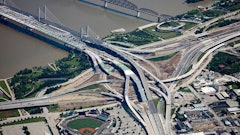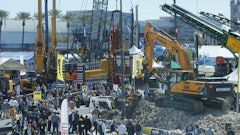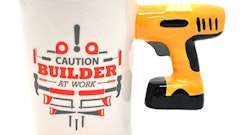In an economy where competition is fierce and customers are hesitant, what you provide in your estimate can offer you a leg up (or put you behind) the competition. With the vast amount of research and educational articles available online, customers are becoming more savvy about what they want not only in their construction project but also what they should look for on a contractor's estimate.
Understanding the Variables of Successful Bidding
A recent article on Software Advice written by Daniel Pearson offers customers suggestions on what to look for on a contractor's bid. And if the customer is looking for it you'll want to consider giving the customer what he or she wants.
While this particular article is geared toward the customer, contractors can pick up a few tips on how to adjust their bids and estimates to reflect what a more educated customer is looking for.
Customers want detail
"The level of detail in a contractor’s bid is an excellent indicator of how accurate the estimate is," Pearson says in the article. Instead of submitting a bid that just breaks costs between a few categories (such as materials and labor) consider detailing the cost breakdown even further for every phase of the job - and include completion times. Pearson suggests going even further into a thorough analysis of individual items such as the exact quantity of materials, subcontractors fees and the amount of time each laborer will spend on site.
Sweat the 'Little Things' When Bidding
In addition to preparing a detailed bid, also be prepared to answer customers' questions in detail as well.
While it may be impossible to put together an exact time schedule for each phase of the project, make sure your bid reflects that your schedule is well thought out, well planned and organized.
Customers want accuracy
Well an estimate is just that and not an exact quote, customers are looking for estimates that will be as close to the final total as possible. "Unfortunately, too many contractors provide ballpark estimates or simply agree to a subcontractor’s fee without verifying actual costs by comparing similar bids in the market or using a reliable database," Pearson says. One way contractors can work toward a more accurate estimate is by using estimating software.
Software Solutions Create Accurate and Fast Estimates
While not perfect, software programs often include features to help eliminate errors and prompts to make sure contractors are filling out as much detail as possible. Many software programs also let contractors use industry cost databases to quickly and accurately find prices. If not using software, Pearson suggests pulling price information from independent cost databases.
How to Calculate an Accurate and Profitable Job Estimate
"Both integrated and third-party databases are regularly updated to reflect fluctuations in pricing that results from inflation or other factors. Relying on this pricing information can help drastically reduce the chance of error. On the other hand, if a contractor is simply estimating material prices or relying upon an outdated database that isn’t maintained, the chances of inaccuracy will be far greater," Pearson says.
Customers want transparency
Perhaps the most important tip is that contractors provide a bid that breaks the estimate down in a way that is easy for the customer to understand the first time they read it. According to Adam Newman, lead technical consultant at Ekotrope, "A well put together bid allows the client to see what they’re spending and exactly what they’re spending money on before their first payment, including accurate estimates of how long each project phase will take to complete.”





























